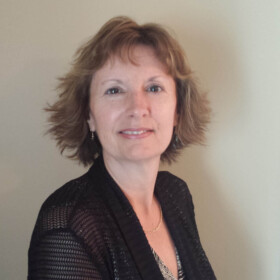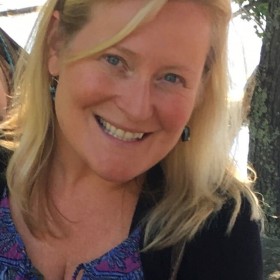Overview
Begin a career dedicated to our next generation! River Valley’s Early Childhood Education Associate Degree provides students with many opportunities—new employment, career advancement, and continuing education, including transfer to bachelor degree programs. River Valley is the best first step into your new career as an early childhood professional.
RVCC 2024-2025 ECE Program Handbook (pdf)
Why RVCC?
A career in early childhood education provides the opportunity to truly touch the future. Early Childhood Education at River Valley offers accessible courses, flexible plans for either full-time or part-time study, and individualized advising.
Here at River Valley you’ll learn how young children develop and grow, and how their optimal development can be promoted through quality care and education. Courses combine theory and practice, including observations and direct work with children, in meaningful ways.
You’ll work with a team of faculty members who are
- dedicated to the early childhood field,
- advocates for young children & their families, and
- passionate about their teaching and working with adult-learners.
Career Options
Child care centers
- Nursery schools
- Head Start centers
- Laboratory schools
- Family child care homes
- After-school programs
- Montessori schools
- Parent cooperatives
- Public and private schools
Related Degrees
The Early Childhood Education Program shares in the mission of River Valley Community College to prepare individuals to enter into the workforce, to advance in their chosen career as early childhood professionals and educators, and to prepare for continued study, including academic transfer. This program is also committed to preparing students to value the importance of and to participate professionally in quality early childhood settings and their communities.
We recognize and respect that students in the Early Childhood Education Program have varied career goals, both short-term and long-range. We work to meet these varied student needs.
We believe that the overall design of the early childhood curriculum should reflect current interdisciplinary knowledge about the preparation of early childhood professionals. We strive to provide a strong foundation for our students by utilizing the standards for early childhood professional preparation at the associate degree level as outlined by the National Association for the Education of Young Children (NAEYC). We believe in and support the Code of Ethics as established by the National Association for the Education of Young Children (NAEYC).
Program Goals
The Early Childhood Education Program utilizes the National
Association for the Education of Young Children (NAEYC) Professional Standards
and Competencies for Early Childhood Professional Preparation Programs,
Position Statement adopted by the NAEYC Governing Board, November 2019.
Graduates of the program will know and be able to do the following:
Standard 1. Child Development and Learning in Context
Early childhood educators (a) are grounded in an
understanding of the developmental period of early childhood from birth through
age 8 across developmental domains. They (b) understand each child as an
individual with unique developmental variations. Early childhood educators (c)
understand that children learn and develop within relationships and within
multiple contexts, including families, cultures, languages, communities, and
society. They (d) use this multidimensional knowledge to make evidence-based
decisions about how to carry out their responsibilities.
Standard 2. Family-Teacher Partnerships and Community Connections
Early childhood educators understand that successful early
childhood education depends upon educators’ partnerships with the families of
the young children they serve. They (a) know about, understand, and value the
diversity in family characteristics. Early childhood educators (b) use this
understanding to create respectful, responsive, reciprocal relationships with
families and to engage with them as partners in their young children’s
development and learning. They (c) use community resources to support young
children’s learning and development and to support children’s families, and
they build connections between early learning settings, schools, and community
organizations and agencies.
Standard 3. Child Observation, Documentation, and Assessment
Early childhood educators (a) understand that the primary
purpose of assessment is to inform instruction and planning in early learning
settings. They (b) know how to use observation, documentation, and other
appropriate assessment approaches and tools. Early childhood educators (c) use screening
and assessment tools in ways that are ethically grounded and developmentally,
culturally, ability, and linguistically appropriate to document developmental
progress and promote positive outcomes for each child. Early childhood
educators (d) build assessment partnerships with families and professional
colleagues.
Standard 4. Developmentally, Culturally, and Linguistically Appropriate Teaching
Practices
Early childhood educators understand that teaching and
learning with young children is a complex enterprise, and its details vary
depending on children’s ages and characteristics and on the settings in which
teaching and learning occur. They (a) understand and demonstrate positive,
caring, supportive relationships and interactions as the foundation for their
work with young children. They (b) understand and use teaching skills that are
responsive to the learning trajectories of young children and to the needs of
each child. Early childhood educators (c) use a broad repertoire of
developmentally appropriate and culturally and linguistically relevant,
anti-bias, and evidence-based teaching approaches that reflect the principles
of universal design for learning.
Standard 5. Knowledge, Application, and Integration of Academic Content in the Early Childhood Curriculum
Early childhood educators have knowledge of the content of
the academic disciplines (e.g., language and literacy, the arts, mathematics,
social studies, science, technology and engineering, physical education) and of
the pedagogical methods for teaching each discipline. They (a) understand the
central concepts, methods and tools of inquiry, and structures in each academic
discipline. Educators (b) understand pedagogy, including how young children
learn and process information in each discipline, the learning trajectories for
each discipline, and how teachers use this knowledge to inform their practice.
They (c) apply this knowledge using early learning standards and other
resources to make decisions about spontaneous and planned learning experiences
and about curriculum development, implementation, and evaluation to ensure that
learning will be stimulating, challenging, and meaningful to each child.
Standard 6. Professionalism as an Early Childhood Educator
Early childhood educators (a) identify and participate as
members of the early childhood profession. They serve as informed advocates for
young children, for the families of the children in their care, and for the
early childhood profession. They (b) know and use ethical guidelines and other
early childhood professional guidelines. They (c) have professional
communication skills that effectively support their relationships and work
young children, families, and colleagues. Early childhood educators (d) are
continuous, collaborative learners who (e) develop and sustain the habit of
reflective and intentional practice in their daily work with young children and
as members of the early childhood profession.
The Early Childhood Education Level I Certificate, Level II Certificate, Infant & Toddler Certificate and Associate Degree are all open enrollment programs. This means we accept students once they are accepted to River Valley; no additional program-specific requirements are necessary. At RVCC, we believe all students should be able to complete a certificate or degree and be able to transfer or start their career as smoothly as possible.
Important Notes:
- All applicants should carefully review the ECE Program’s Technical Standards prior to matriculation.
- All applicants should also read the full Criminal Background Check Policy in the Admissions section of RVCC Catalog and the Student Handbook.
- Applicants seeking admission to the Early Childhood Education Program who believe they may have difficulty with a state registry and criminal records check are advised to contact the New Hampshire Bureau of Child Care Licensing (1-800-852-3345) prior to matriculation.
If you have any questions about the Early Childhood Education programs of study, the please do not hesitate to request information or reach out to the ECE Program Director Kerry Belknap Morris at [email protected] or 603-542-7744, extension 5411.
Course Sequencing
First Year: Fall Semester
Mathematics Elective
Total Credits: 3 – 4
First Year: Spring Semester
Science Elective
Total Credits: 3 – 4
Second Year: Fall Semester
Early Childhood Education 200-level Elective
Total Credits: 3
Humanities/Fine Arts/World Language Elective
Total Credits: 3 – 4
Second Year: Spring Semester
ECE 290R or 291R
Total Credits: 3
Early Childhood Education 200-level Elective
Total Credits: 3
English/Humanities/Fine Arts/World Language/Science/Mathematics or Social Science Elective
Total Credits: 3 – 4
Kerry Belknap Morris
Early Childhood Education | Professional Studies | Social ServicesProfessor & Program Director, Early Childhood Education & Social ServicesAimee Jahn
Liberal Arts | Professional StudiesProfessor & Department Chair, Professional Studies
62-66 Credits Required




 Social, Educational and Behavioral Science
Social, Educational and Behavioral Science